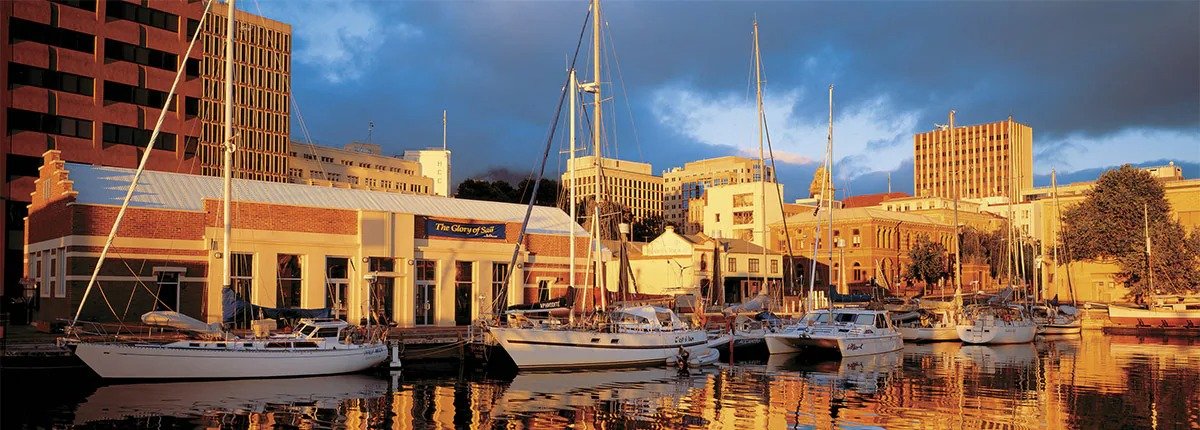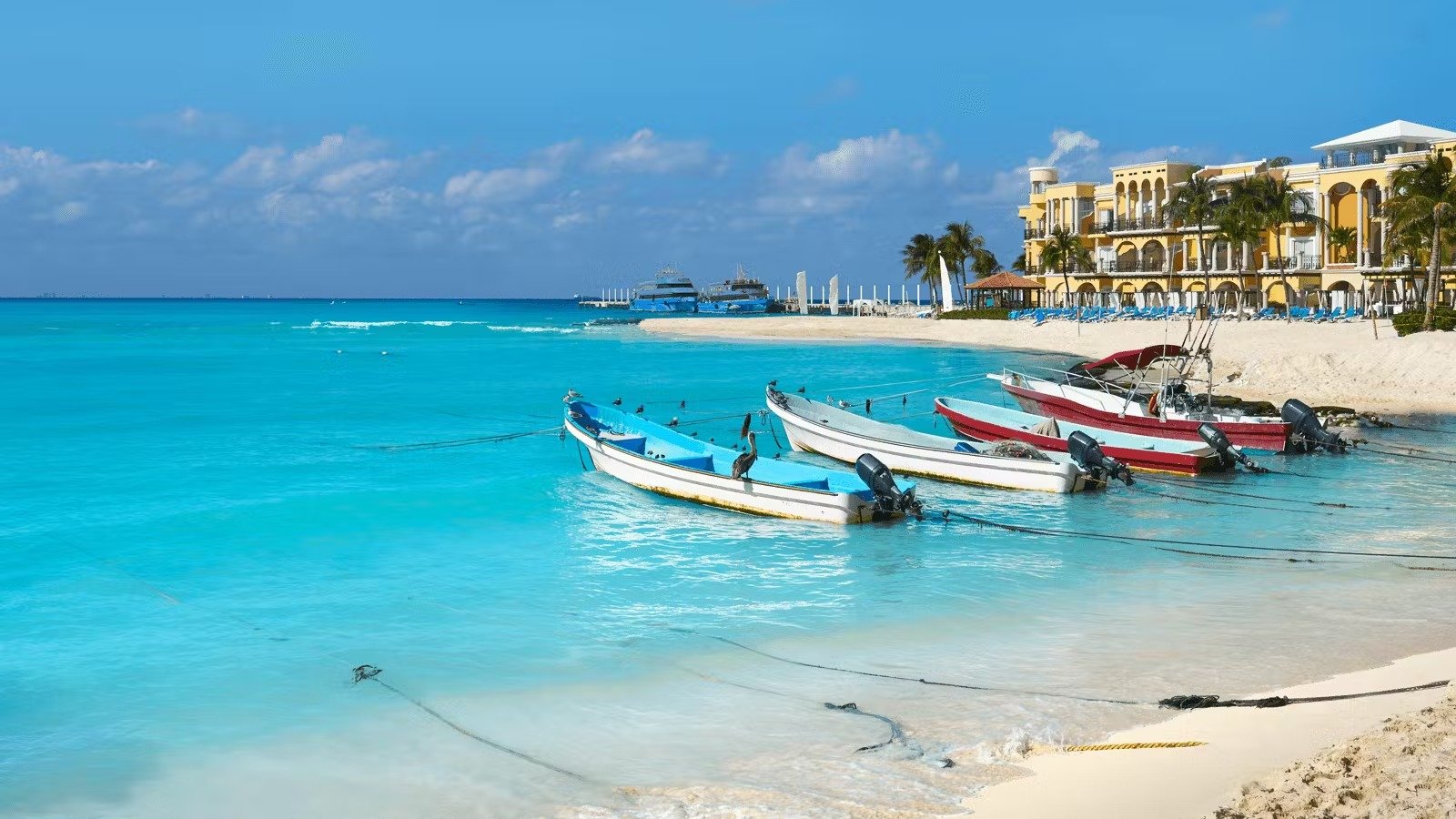What's the Difference Between a Travel Agent and a Travel Advisor?
You're scrolling through vacation ideas on your phone, dreaming about that perfect getaway. You know you want help planning it, but who do you call? A travel agent? A travel advisor? And wait—aren't they the same thing?
Here's the deal: these terms get tossed around like they're interchangeable, but there's actually a pretty interesting story behind them. The travel industry has been going through a major glow-up over the past couple decades, and the whole "agent versus advisor" thing is way more than just fancy wordplay. It's about how the entire profession has transformed from booking flights to creating life-changing experiences!
Whether you're planning a Disney vacation, a European honeymoon, or just trying to figure out who can help make your travel dreams come true, understanding this difference matters. And honestly? It's going to change how you think about planning your next trip.
Looking to become a Travel Professional? Join us here at MainStreet Travel, we offer a $99 Starter Membership and a Travel Plus Membership for only $199! There’s no annual dues or monthly fees, and no minimum booking requirements! Earn money by booking trips for your family and friends!
The Old School Travel Agent
Let's roll back to the pre-internet days for a second. Travel agents were basically the only game in town if you wanted to book anything beyond driving to your aunt's house. You couldn't just hop on Expedia at 2am in your pajamas and book a flight to Cancun. If you wanted to travel, you walked into a travel agency office, sat down with an agent, and they'd handle everything for you.
Back then, travel agents were primarily transactional professionals. Their main gig? Processing bookings. You'd tell them where you wanted to go, when you wanted to leave, and they'd work their magic with airlines, hotels, and tour companies to get you there. They had access to systems and information that regular people just couldn't get their hands on.
Think of them as middlemen between you and the travel suppliers. They'd book your flights, reserve your hotel room, maybe snag you a rental car, and send you on your way. It was pretty straightforward—you told them what you wanted, they made it happen, and boom, you had a vacation.
The role was super important because, honestly, how else were you going to book international travel? But it was also kind of limiting. Most agents worked with pre-packaged tours and fixed itineraries. You picked from what was available rather than getting something custom-made for you.
The Internet Changed Everything
Then the internet showed up and totally flipped the script. Suddenly, anyone with a computer could compare flight prices, read hotel reviews, and book their own trips. Online booking sites like Expedia, Kayak, and Booking.com made it crazy easy to DIY your vacation planning.
A lot of people thought this would be the end of travel agents. Why pay someone to book a hotel when you could do it yourself in five minutes? For a while there, traditional brick-and-mortar travel agencies were closing left and right.
But here's the thing—the profession didn't die. It evolved. The internet gave travelers access to information, but it also created a new problem: information overload. When you Google "Mexico vacation," you get over 300 million results. Who has time to sort through all that?
Enter the Travel Advisor
This is where the travel advisor comes in, and why the industry started shifting away from the term "agent". In 2018, the American Society of Travel Agents—one of the biggest trade groups in the industry—officially changed its name to the American Society of Travel Advisors. It was their first name change in almost 75 years, and it wasn't just some random rebrand.
They did a ton of research with focus groups and thousands of consumers to figure out what people actually wanted. The word "advisor" tested way better than "agent" because it captured what modern travel professionals actually do. They're not just processing bookings anymore—they're providing expert advice, designing custom experiences, and acting more like consultants.
So What's the Actual Difference?
Okay, let's break this down in simple terms.
Travel agents are transaction-focused. They help you book travel services—flights, hotels, rental cars, pre-packaged tours. They're great at finding competitive pricing and handling the logistics of getting you from Point A to Point B. Think of them as the order-takers of the travel world.
Travel advisors go way deeper. They're more like your personal travel strategist. Instead of just booking what you ask for, they spend time getting to know you—your interests, your travel style, your budget, what makes you excited about a trip. Then they use that information plus their insider knowledge to design experiences specifically for you.
A travel advisor doesn't just book you a hotel in Paris. They'll find you a boutique property in the perfect neighborhood, make sure you get a room upgrade, score reservations at that restaurant you've been dying to try, and set up a private tour of the Louvre that skips all the tourist crowds.
The difference is between someone who processes your request and someone who crafts an entire experience. One is transactional, the other is consultative.
Why the Name Change Actually Matters
You might be thinking, "Okay, but does the terminology really matter? Aren't we just splitting hairs here?"
Fair question! And honestly, for travelers, the terms are pretty much used the same way. When someone says they're looking for a travel agent or a travel advisor, they usually mean the same thing.
But the shift in terminology reflects a real change in how these professionals work. It's about moving from a commission-based booking service to a fee-for-expertise business model. It's about specialization, personalization, and providing value that goes way beyond just making reservations.
The rebranding also helped distance the profession from the outdated stereotype of agents who just push whatever earns them the highest commission. Modern travel advisors are more like financial advisors or CPAs—trusted professionals who work in your best interest.
What Travel Advisors Actually Do Today
Let's get specific about what working with a modern travel advisor looks like.
First off, they're going to spend quality time understanding what you want. Like, really understanding it. They'll ask about your past trips—what you loved, what you didn't. They'll dig into your interests, your budget, any special needs or preferences. This isn't just small talk. They're gathering the info they need to design something perfect for you.
Then they get to work. Travel advisors have industry connections and partnerships you can't access on your own. Through programs like Virtuoso, Four Seasons Preferred, and Rosewood Elite, they can get you perks like room upgrades, resort credits, complimentary breakfasts, early check-in, and late checkout. These aren't things you'd score booking directly online.
They also handle all the tedious stuff—coordinating transfers, making restaurant reservations, booking tours and activities, sorting out travel insurance. For complex trips with lots of moving parts (like a multi-country European tour or an African safari), having someone manage all those details is seriously valuable.
And here's a huge one: they've got your back if something goes wrong. Flight cancelled? Hotel overbooked? Unexpected strike in the country you're visiting? Your travel advisor becomes your personal advocate, working to fix the problem while you're already stressed on vacation. Try getting that level of support from a booking website!
The Personalization Factor
This is really where travel advisors shine. In today's world, travelers—especially millennials and Gen Z—are all about authentic, personalized experiences. Nobody wants the same cookie-cutter vacation everyone else is taking.
Travel advisors specialize in creating trips that fit your unique personality and preferences. Love food? They'll build your itinerary around incredible culinary experiences. Into adventure? They know the best local guides for hiking, diving, or whatever gets your adrenaline pumping. Traveling with kids? They'll find family-friendly properties that keep everyone happy.
They're also staying on top of what's new and what's good. They take FAM trips (familiarization trips) where suppliers wine and dine them so they can experience properties and destinations firsthand. That means when they recommend a resort or a restaurant, it's based on actual experience, not just online reviews.
The Expertise You Can't Google
Sure, you can research destinations online all day long. But there's a difference between reading 1,000 TripAdvisor reviews and talking to someone who's actually been there.
Travel advisors bring destination expertise that's current and credible. They know which hotels were just renovated, which tour companies are reliable, which neighborhoods are safe, and which "must-see" attractions are actually tourist traps. They also understand the logistics—visa requirements, best times to visit, cultural customs, getting around.
This expertise is especially valuable for international travel or trips to places you're not familiar with. When you're heading somewhere with a different language, different customs, and unfamiliar systems, having a knowledgeable advisor makes the whole thing way less stressful.
When You Should Use a Travel Agent (Old School Style)
Okay, so when does the traditional travel agent model still make sense?
If you're looking for something straightforward—like booking a quick weekend trip, a simple flight and hotel combo, or a standard vacation package—a travel agent can handle that efficiently. They're also great for last-minute bookings, group travel logistics, or business trips where you just need the basics sorted out.
Travel agents excel at volume booking and finding competitive rates on standard travel products. If price is your main concern and you're not looking for bells and whistles, the transactional approach works just fine.
Some people also just prefer the simplicity of telling someone what they want and having them book it without a lot of back-and-forth. There's nothing wrong with that! Not every trip needs to be a highly customized experience.
When You Definitely Want a Travel Advisor
On the flip side, here's when you really want to work with a modern travel advisor who's going to go deep on planning.
Milestone trips: Honeymoons, anniversary celebrations, bucket-list adventures—these are once-in-a-lifetime experiences where you want everything to be perfect. A travel advisor will make sure every detail is dialed in.
Complex itineraries: Multi-destination trips, safaris, cruises combined with land stays, or anything with lots of moving parts. The more complicated your trip, the more valuable an advisor becomes.
Luxury travel: If you're splurging on a high-end vacation, you want someone who can unlock exclusive access, VIP treatment, and insider perks. Travel advisors with luxury affiliations can make that happen.
Unfamiliar destinations: Heading somewhere you don't know much about? A travel advisor's local knowledge and connections will help you avoid mistakes and discover experiences you wouldn't find on your own.
Group travel: Destination weddings, family reunions, corporate retreats—coordinating travel for groups is a nightmare. Let an advisor handle it.
Peace of mind: If you're someone who gets overwhelmed by planning, values having support if things go wrong, or just wants the stress taken off your plate, an advisor is worth every penny.
What Does It Cost?
Let's talk about fees because this confuses a lot of people.
Traditionally, travel agents made money purely from commissions paid by suppliers—airlines, hotels, cruise lines. You didn't pay them directly. But here's the thing: airline commissions basically disappeared, and hotel commissions got slashed. That old model just doesn't work anymore.
So now, most travel advisors charge planning fees. These typically range from $150 to $500 for most trips, but can go higher for really complex itineraries or luxury travel. Some charge flat fees, others charge per day of travel, and some do hourly rates.
A lot of people worry this makes using an advisor more expensive. But here's the reality: the fee covers their time and expertise, which saves you hours of research and helps you avoid costly mistakes. Plus, the perks and upgrades they secure often more than make up for the fee.
Think about it this way—you pay financial advisors, lawyers, and CPAs for their expertise, right? Travel advisors deserve the same respect for their professional knowledge.
The Hidden Benefits Nobody Talks About
Beyond the obvious stuff, there are some serious advantages to working with travel advisors that don't get enough attention.
You're supporting a real person building a business instead of funneling money to massive corporate booking sites. Many travel advisors are independent entrepreneurs or small business owners who genuinely love what they do.
You get a relationship, not just a transaction. Work with the same advisor over time, and they'll learn your preferences, remember details about your past trips, and make better recommendations with each vacation. It's like having a friend who's a travel expert!
They stay updated on travel requirements and restrictions—something that's been huge since the pandemic. Entry requirements, health protocols, documentation—travel advisors track all that stuff so you don't have to.
They have access to exclusive experiences you can't book yourself. Private tours, hard-to-get reservations, special access to sold-out hotels—these connections are real and valuable!
Are There Downsides to Using a Travel Advisor?
Let's be real—working with a travel advisor isn't always the perfect solution for everyone.
It costs money upfront. Those planning fees are a barrier if you're on a super tight budget. For simple trips, it might not be worth the expense.
You give up some control. If you're someone who loves researching every detail and making all your own decisions, working with an advisor might feel restrictive. Some advisors also work primarily with certain suppliers, which could limit your options.
Quality varies. Like any profession, there are amazing travel advisors and mediocre ones. You need to do your homework to find someone reputable with expertise in the type of travel you want.
It requires communication. You'll need to spend time explaining what you want, providing feedback on proposals, and staying in touch. If you're terrible at responding to emails, that could be frustrating for both of you.
How to Find a Good Travel Advisor
So you're sold on working with an advisor. How do you find a good one?
Ask for recommendations from friends and family who've had great experiences. Personal referrals are gold.
Look for specialization that matches your trip. If you're planning an African safari, find an advisor who specializes in Africa, not someone who mainly does Caribbean cruises.
Check credentials and affiliations. Look for certifications like CTA (Certified Travel Associate) or memberships in organizations like Virtuoso or ASTA.
Ask about their experience. Have they been to your destination? How many similar trips have they planned? What's their travel philosophy?
Clarify the fee structure upfront. Know what you're paying and what's included. No surprises.
Read reviews or check references. See what other travelers say about working with them.
Make sure their communication style matches yours. Do they respond quickly? Are they patient with questions? Do they "get" what you're looking for?
The Disney Connection
Here's something interesting: Disney travel advisors are actually a huge part of the modern travel advisor movement.
Disney vacations have gotten crazy complicated. Park reservations, dining reservations, Genie+ strategies, knowing which resorts fit which families—there's so much to navigate. Disney-focused travel advisors specialize in cutting through all that complexity.
And here's the kicker: booking through a Disney travel advisor doesn't cost you extra. Disney pays them commission, and you get the same price you'd pay booking direct—but with way better service and expertise. They'll monitor for discounts, help you strategize your park days, snag those impossible dining reservations, and basically make your Disney vacation infinitely better.
This is a perfect example of how the travel advisor model adds value without increasing cost.
Common Misconceptions
Let's bust some myths that keep floating around.
"Travel agents are obsolete." Nope! The industry has actually grown, with 50% more travelers using advisors now than in the past. People want expert help more than ever.
"I can always get a better deal myself." Not necessarily. Advisors have access to rates, perks, and packages you can't get online. Even if the base rate is the same, the added value often makes their service worth it.
"They're just trying to sell me whatever earns them the most commission." Reputable advisors work for you, not suppliers. Their success depends on happy clients who come back and refer friends.
"I'm too young/tech-savvy/independent to need a travel advisor." Actually, millennials and Gen Z are increasingly using advisors because they value personalized experiences and authentic travel. Being good with technology doesn't mean you have time to research everything or know the insider secrets.
"It's only for luxury travelers." While advisors do excel at luxury travel, they work with all budgets and travel styles. You can find advisors who specialize in budget travel, family trips, adventure travel, or whatever your thing is.
The Future of the Profession
Where's all this headed? The travel industry keeps evolving, but a few trends are pretty clear.
Personalization is king. As travelers demand more unique, customized experiences, the advisory model will keep growing. Generic packages are out. Tailored adventures are in.
Specialization will increase. Instead of generalist agents who book everything, we'll see more advisors who focus on specific niches—solo female travel, multigenerational trips, sustainable tourism, LGBTQ+ travel, accessible travel.
Technology will be a tool, not a replacement. AI and booking platforms will get better, but they can't replace human expertise, personal relationships, and creative problem-solving. Smart advisors will use technology to enhance their service, not compete with it.
Fees will become standard. The commission-only model is basically dead. Expect planning fees to be the norm, which actually protects both advisors and clients.
Hybrid models will emerge. Some businesses will blend the roles of tour operator, travel advisor, and travel consultant. Lines will blur, but the focus will stay on delivering value.
Making Your Choice
At the end of the day, what you call them matters less than finding the right professional for your needs.
If you want someone to handle straightforward bookings efficiently and affordably, a traditional travel agent approach works great.
If you want someone to design a customized experience, provide expert guidance, and act as your advocate throughout the journey, you want the full travel advisor service.
The truth is, most modern travel professionals—whatever they call themselves—are operating as advisors even if they sometimes use the term agent. The industry has moved toward that consultative, personalized model because that's what travelers want and need.
Your job is to figure out what level of service you want, what you're willing to pay for it, and which professional is the best fit for your specific trip.
Frequently Asked Questions
Is there really a difference between a travel agent and a travel advisor?
Technically yes, though the terms are often used interchangeably. Travel agents traditionally focused on transactional bookings—processing your requests for flights, hotels, and tours. Travel advisors take a consultative approach, spending time understanding your preferences and designing customized experiences. The industry shifted toward "advisor" to better reflect the modern role of providing expert guidance rather than just booking services.
When should I use a travel advisor instead of booking myself?
Use a travel advisor for complex trips like multi-destination itineraries, safaris, or cruises. They're also worth it for milestone events like honeymoons, unfamiliar destinations where you need expert guidance, luxury travel where you want exclusive perks, and group travel that requires coordination. If you're overwhelmed by planning or want someone to handle problems if things go wrong, an advisor provides peace of mind.
Do travel advisors really save you money?
While travel advisors typically charge planning fees ranging from $150-$500, they often provide value that exceeds the cost. They have access to exclusive rates, upgrades, resort credits, and perks you can't get booking direct. They also save you hours of research time and help you avoid expensive mistakes. Think of the fee as paying for expertise, like you would with a financial advisor or lawyer.
Are travel agents/advisors outdated with online booking available?
No! The profession is actually growing, with 50% of travelers more likely to use advisors now than before. While online booking sites are convenient for simple trips, they can't provide personalized recommendations, handle complex itineraries, or advocate for you when problems arise. Advisors offer human expertise that booking engines can't replicate, especially as travelers increasingly seek authentic, customized experiences.
How much does it cost to work with a travel advisor?
Most travel advisors now charge planning fees, typically $150-$500 for standard trips, though complex international itineraries or luxury travel may cost more. Some charge flat fees, others charge per day of travel, and some use hourly rates. Many advisors also earn commissions from suppliers, but the planning fee compensates them for research and design work before bookings are made. Always ask about fees upfront so you know what to expect.
What questions should I ask when choosing a travel advisor?
Ask about their specialization and experience with your type of trip. Find out their fee structure and what services are included. Request references or read reviews from past clients. Ask if they've personally visited your destination. Clarify how they communicate and provide support during your trip. Find out what travel industry affiliations they have, like Virtuoso or ASTA membership. Understanding their process will help ensure they're the right fit.
Can travel advisors get me better hotel rates and perks?
Yes! Travel advisors who work with consortia like Virtuoso, Four Seasons Preferred, or Rosewood Elite can access exclusive perks including room upgrades, complimentary breakfast, resort credits, early check-in, and late checkout. These amenities aren't available when booking direct or through online travel agencies. Advisors also have relationships with property managers that can result in VIP treatment. You often pay the same rate but get significantly more value.
What's the difference between a travel advisor and a travel consultant?
These terms are largely interchangeable and both refer to professionals who provide expert travel guidance. "Consultant" emphasizes the advisory nature of the role—someone who offers expertise and recommendations. Like "advisor," it distances the profession from the old transactional "agent" model. Some professionals prefer "consultant" or other titles like "travel specialist" or "travel designer," but they all describe similar services focused on personalized travel planning.
Do Disney travel agents charge fees?
Most Disney-focused travel advisors don't charge planning fees because Disney pays them commission. This means you get expert help with park reservations, dining bookings, resort selection, and trip planning at no additional cost—you pay the same price you would booking direct with Disney. However, some advisors may charge fees for very complex trips or extensive customization. Always confirm the fee structure upfront.
How do I know if a travel advisor is reputable?
Look for certifications like CTA (Certified Travel Associate) or CTC (Certified Travel Counselor) from The Travel Institute. Check for membership in professional organizations like ASTA (American Society of Travel Advisors) or consortia like Virtuoso. Read online reviews and ask for references from past clients. See if they specialize in your type of travel—specialists often provide better service than generalists. Personal referrals from friends or family who've had great experiences are also valuable!
Bottom Line
The difference between a travel agent and a travel advisor isn't just semantics. It represents a fundamental shift in how travel professionals work—from transactional booking services to consultative travel design!
Travel agents process what you ask for. Travel advisors create what you didn't even know was possible.
Both have their place. Simple trips with straightforward needs? An agent is fine. Complex, meaningful, or high-stakes travel? You want an advisor in your corner.
The good news is that the modern travel industry offers options for every type of traveler and every budget. Whether you're planning that Disney vacation, booking a honeymoon in Italy, or finally checking Iceland off your bucket list, there's a travel professional out there who can help make it amazing!
Just know what you're looking for, ask the right questions, and don't be afraid to invest in expertise. Your vacation time is precious. Make it count!













